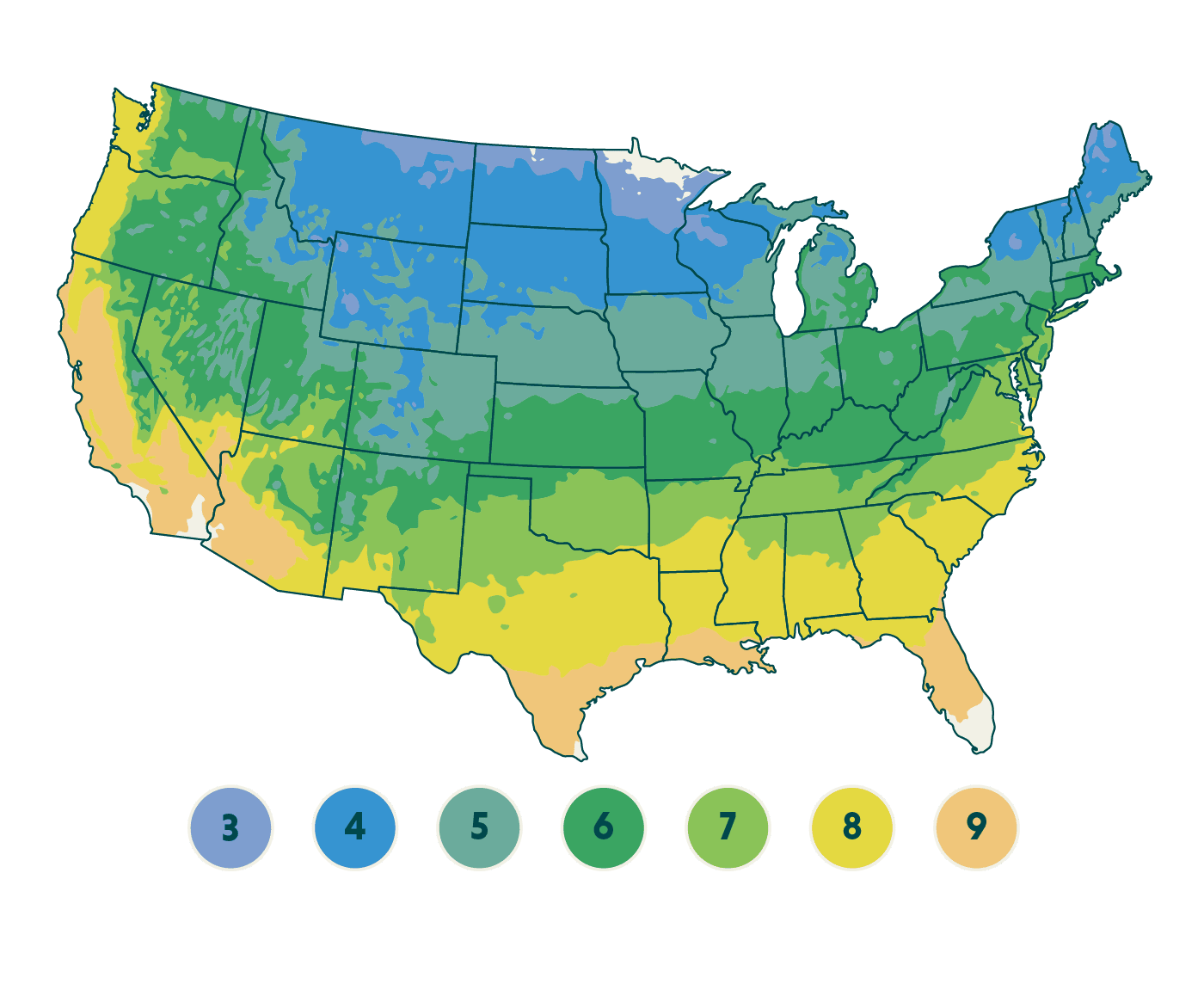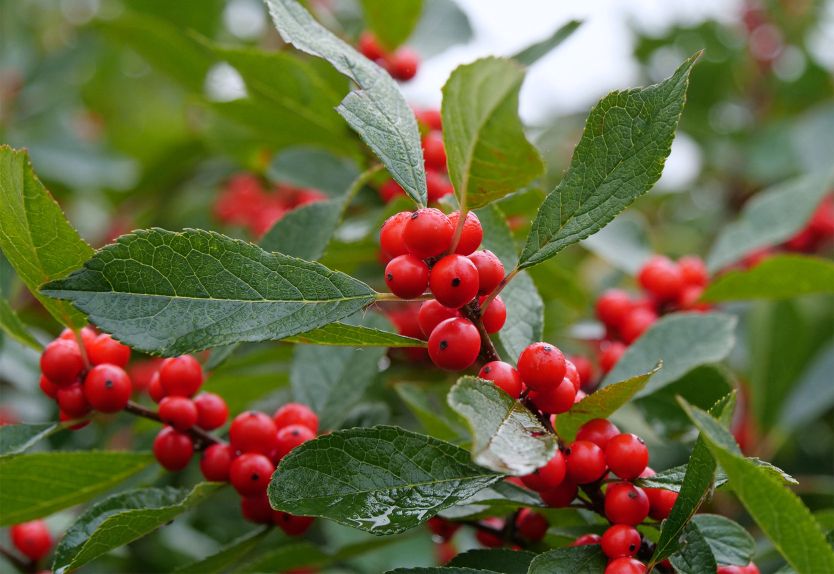Ilex verticillata 'Spravy'
Winterberry - Berry Heavy®
Berry Heavy® is a deciduous holly which produces a very heavy, bright red berry crop. The spectacular fall and winter show is sure to brighten the short days of the season. Winterberry holly is a dioecious shrub, which means that each plant produces either male or female flowers. Berry Heavy® is a female plant which requires the male pollinator, Mr. Poppins®. One male plant will pollinate up to five females. Plant Berry Heavy® within about 50' of Mr. Poppins® to ensure pollination and good fruit set. Keep in mind, the male plant does not produce berries. Fruit is not edible. Suitable in mass plantings, hedges, cutting gardens, wildlife gardens and natural areas. Attracts pollinators. Deer resistant.
PLEASE NOTE: To produce berries, you'll need Mr. Poppins®Be advised, the fruits of Winterberry are poisonous to humans.
Our plants come with extra large and fibrous root systems, ready to plant and flourish!
Key Plant Details
Planting Zones:
3, 4, 5, 6, 7, 8, 9
Soil Type:
Clay, Sandy, Loamy
Light Requirement:
Part Sun, Sun
Moisture:
Average, Wet
Plant Characteristics
Mature Size:
5-10 feet in height, 6-8 foot spread
Annual Growth Rate:
Moderate
Flower Color:
White
Bloom Time:
Spring
Shop By Use:
Attracts Pollinators, Deer Resistant, Juglone Tolerant, Winter Interest
Care Tips
Care Tips - Growing:
One male plant will pollinate up to five females. Plant within about 50'/15.25m of one another to ensure pollination and good fruit set. Quite tolerant of shaded conditions; however, flowering and fruit set is best with at least 4 hours of sun each day.
Care Tips - Pruning:
Winterberry holly blooms on old wood. However, pruning female varieties after blooming will remove any developing fruit, so pruning is not recommended except to remove entire branches in an effort to attain a specific form. Male varieties could be pruned after blooming, however, given the typically slow growth rate of winterberry hollies, pruning is not recommended for them either.
Care Tips - Soil:
Does best in moist (even very moist), slightly acidic soils, but can take average soils as well. Avoid high pH sites.
Care Tips - Uses:
Mass plantings; hedges; cutting gardens; wildlife gardens; natural areas.
Zone Map
This plant will grow in these zones


